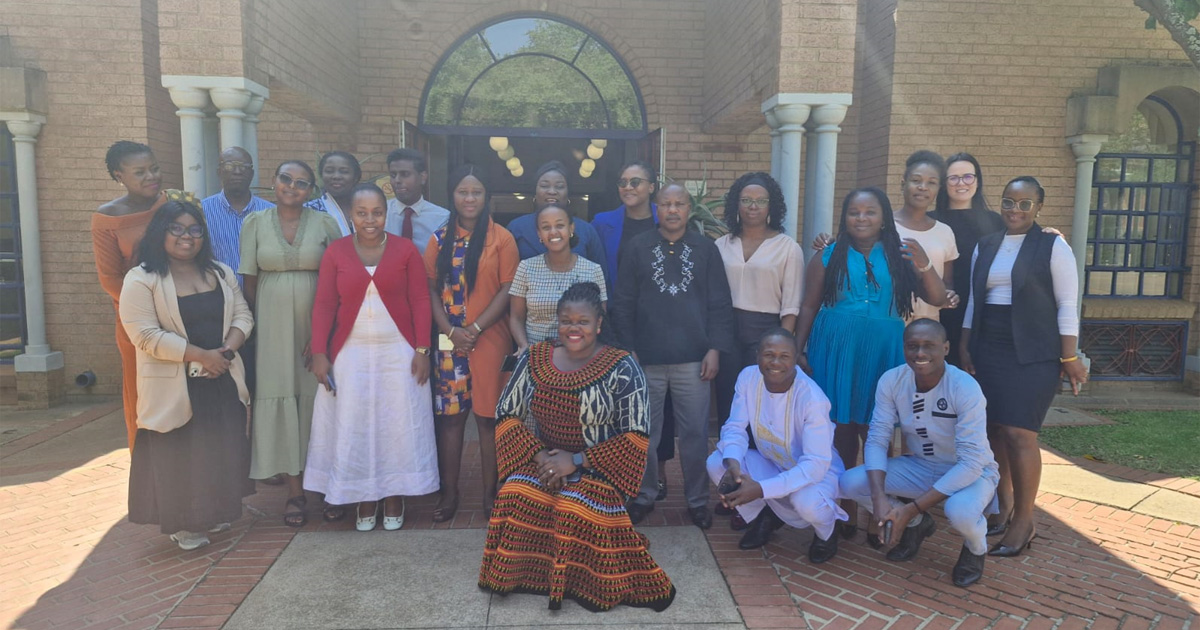On 20 November 2024, a significant validation meeting was held by the Sexual and Reproductive Health and Rights in Africa Unit at the Centre for Human Rights, University of Pretoria. The meeting focused on critical issues regarding the sexual and reproductive health and rights (SRHR) of older women across Africa. Despite the presence of various human rights instruments designed to protect the rights of older individuals, the meeting underscored the ongoing barriers that older women face in accessing SRHR services.
Older persons, particularly women, continue to grapple with serious challenges, particularly when it comes to sexual and reproductive health. While numerous regional and international human rights frameworks guarantee these rights, older women in Africa still experience unmet needs, especially in accessing the healthcare services critical for their sexual and reproductive health. Many older women across the continent still face significant barriers in obtaining appropriate care, resulting in unmet needs for sexual and reproductive health services.
At the core of the discussion was the need to examine why access to SRHR services remains largely out of reach for older persons, and particularly for older women. The validation meeting underscored the importance of interrogating national laws and policies, which often fail to address the SRHR needs of older women. Despite international and regional instruments that advocate for the rights of older persons, national legal frameworks and health systems have not effectively adapted to meet the needs of this group.
In response to these challenges, the Centre for Human Rights commissioned five consultants to develop comprehensive reports that focus on the SRHR of older women in five regions of Africa: Southern, Eastern, Western, Northern, and Central Africa. The aim of the research was to identify the barriers that prevent older women in select countries from accessing SRHR services, challenges older persons face in enjoying their SRHR as well as to evaluate how international human rights standards on SRHR have been domesticated at the national level in these countries.
These consultants, through their extensive research, explored key areas of concern such as societal attitudes, inadequate healthcare infrastructure, discriminatory laws, and cultural norms that often limit access to sexual and reproductive health services for older women. Furthermore, the reports highlighted gaps in policy implementation, as well as the insufficient prioritization of SRHR for older women in national health agendas.
Participants at the validation meeting discussed the findings of the reports and exchanged views on how to advocate for legal reform and policy changes that would better address the SRHR needs of older women. It was emphasised that meaningful change would require both the recognition of older women’s SRHR as a human rights issue and a collective effort to remove the barriers to accessing services.
The validation meeting at the Centre for Human Rights, University of Pretoria, underscored the urgent need for more focused attention on the SRHR of older women and the need for legal reforms in this area. It was recognised that addressing these issues requires a collaborative approach, involving governments, human rights organisations, and the communities themselves to ensure that the sexual and reproductive health needs of older women are no longer sidelined.
The Centre for Human Rights continues to be at the forefront of this critical conversation, advocating for the rights of older women and ensuring that their SRHR are respected and realised in Africa and beyond.


